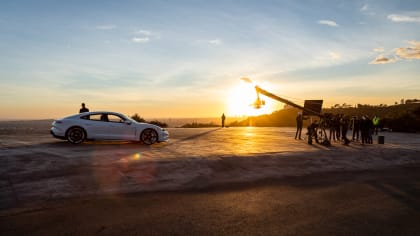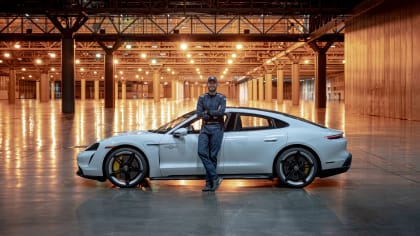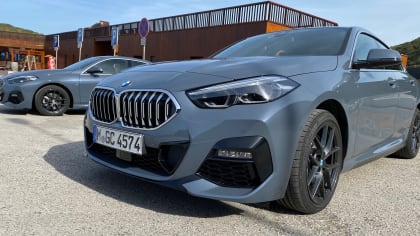Previewing The Nissan Ariya
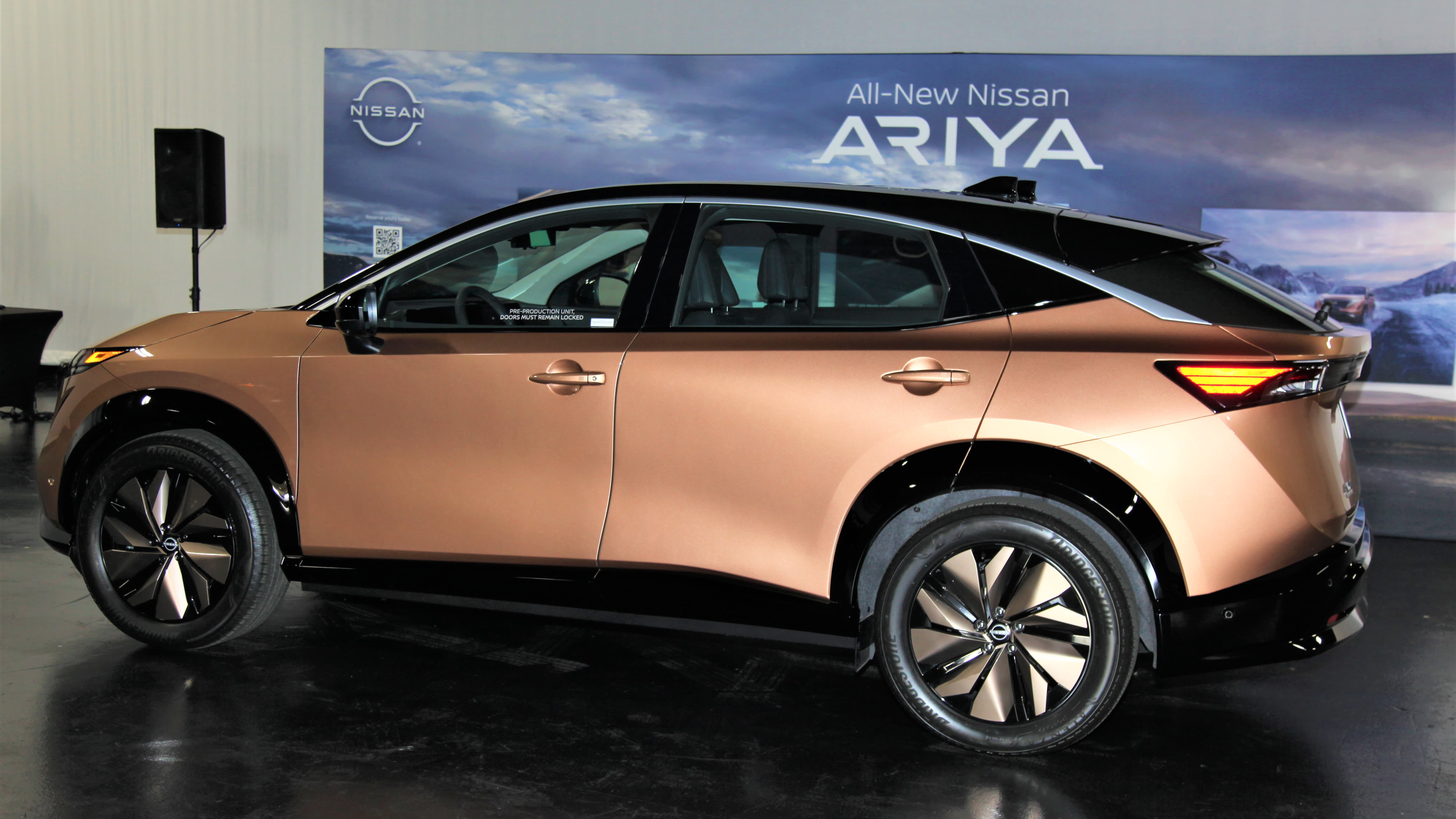
Huge Steps Forward In The Race For A Fossil-Free Freeway
The Nissan Ariya was on display at Autopia 2099. Our contributor digs a little deeper into this specific car, and the progress the industry is making in electric propulsion.
By Zoran Segina
Wed, Dec 22, 2021 11:07 AM PST
The Ariya crossover - equipped with an optional semi-autonomous driving system ProPilot 2.0 - is literally miles ahead of the 85-mile range Leaf tested by yours truly at the dawn of electrical motoring in 2011. The front wheel drive version with an 87.0 kWh battery pack promises 300 miles of range - the more powerful AWD Platinum version shaves about 10 percent of that number.
The Ariya will use the torque-split system currently living in the GT-R for an all-wheel drive in the Platinum+ e-4orce model through a dual-front/rear-electric-motor configuration.
The single-motor models come with 215 hp and 221 lb-ft of torque. Corresponding numbers for the dual-motor version are 389 hp and 443 lb-ft. The more powerful variant should result in 0-60 mph in about 5 seconds, but use more kilowatt-hours.
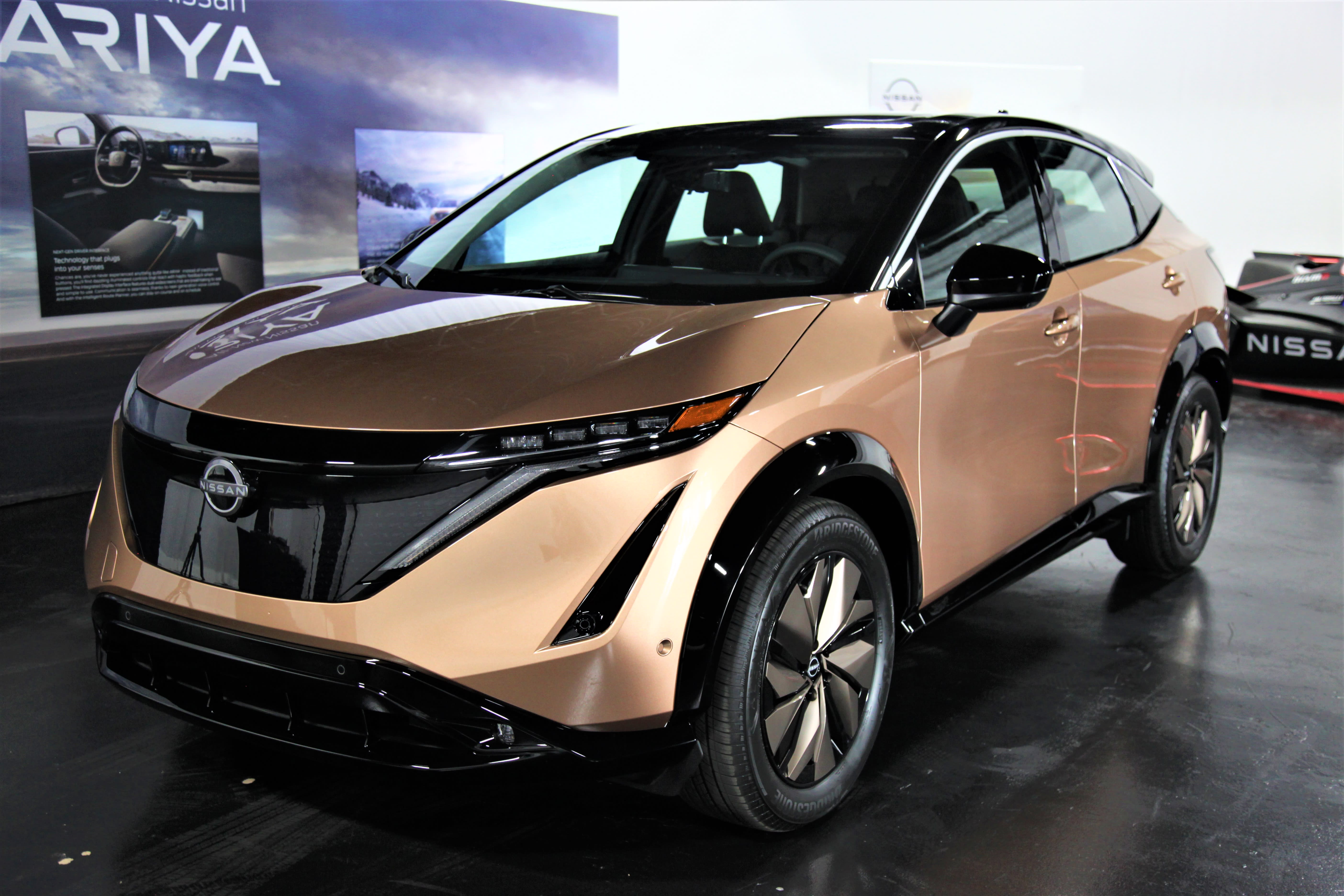
The model on the Autopia 2099 floor was locked, but Nissan promotional materials show futuristic wood-trimmed minimal interior without buttons and a smooth dashboard dominated by a 12.3-inch infotainment screen and 12.3-inch instrument cluster. With slim-profile Zero Gravity seats likely to be a part of Ariya’s interior the life of the rear seat passengers should be more comfortable.
The second generation of the ProPilot system allows drivers to remove their hands from the wheel in the right conditions. (As Tesla discovered; the trick is to define the right conditions.) The Ariya will have standard automated emergency braking with pedestrian detection, lane-departure warning with lane-keeping assist, and optional available adaptive cruise control with semi-autonomous driving mode.
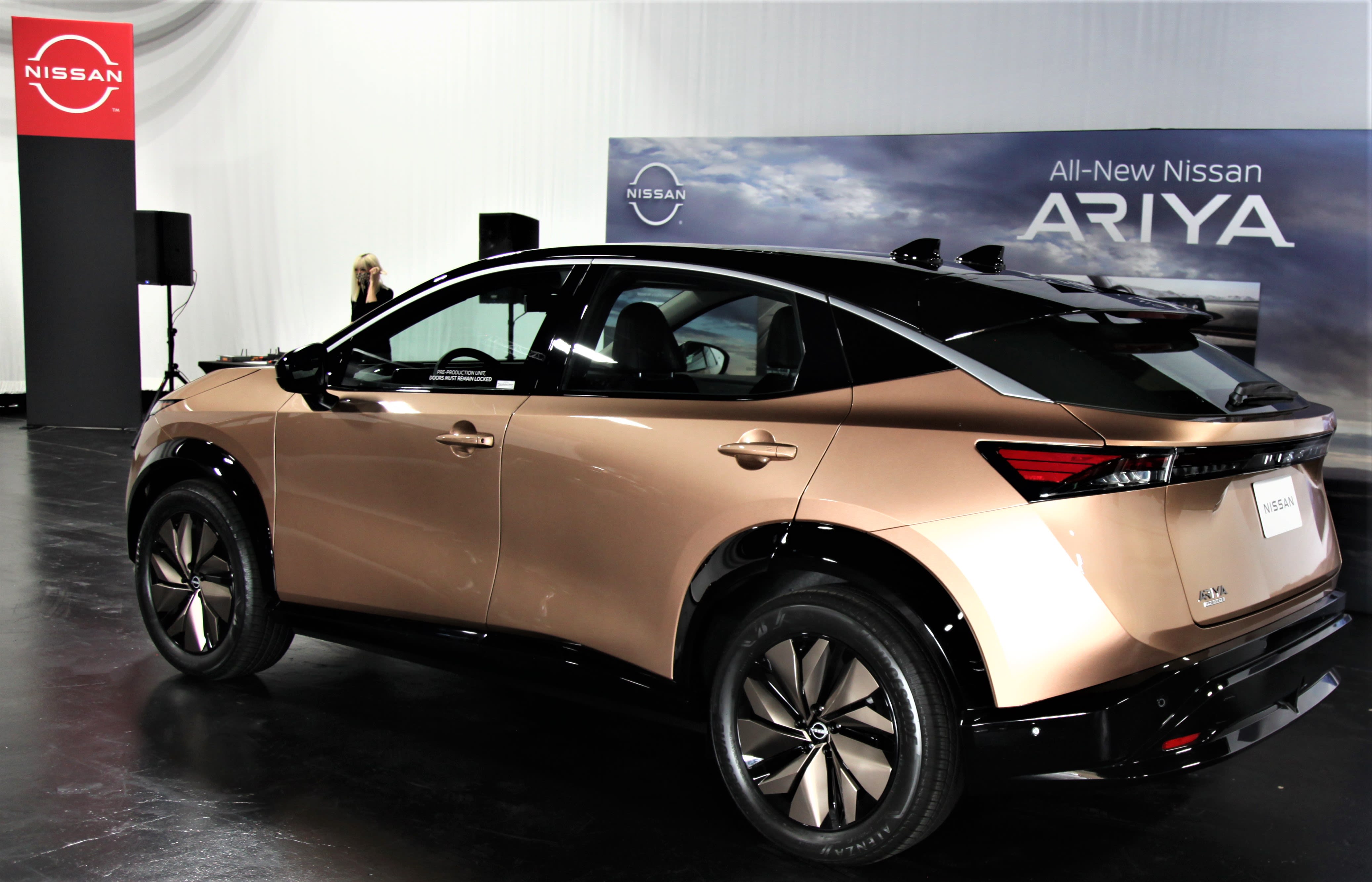
The 2023 Ariya Venture+ base model starts at $47,125 and will be offered in the United States in the fall of 2022, while AWD models go on sale in late fall. It was supposed to go on sale in Japan in the summer of this year (2021) but was delayed because of the shortage of chips.
Nissan is a canary in the electric car coalmine. The only major car manufacturer with a decade long experience in selling half a million Leafs globally and an erstwhile prominence in this field, Nissan has unique experience. The company announced it will invest $17.6 billion in 20 new battery-powered models in its lineup. Tellingly, according to Nissan, some of the vehicles will be pure electric machines while others would depend on gasoline powered hybrids. Realizing the importance of battery capacity, Nissan plans to increase its annual production line from current 7.5 gigawatt hours to 52 gWh by 2026.
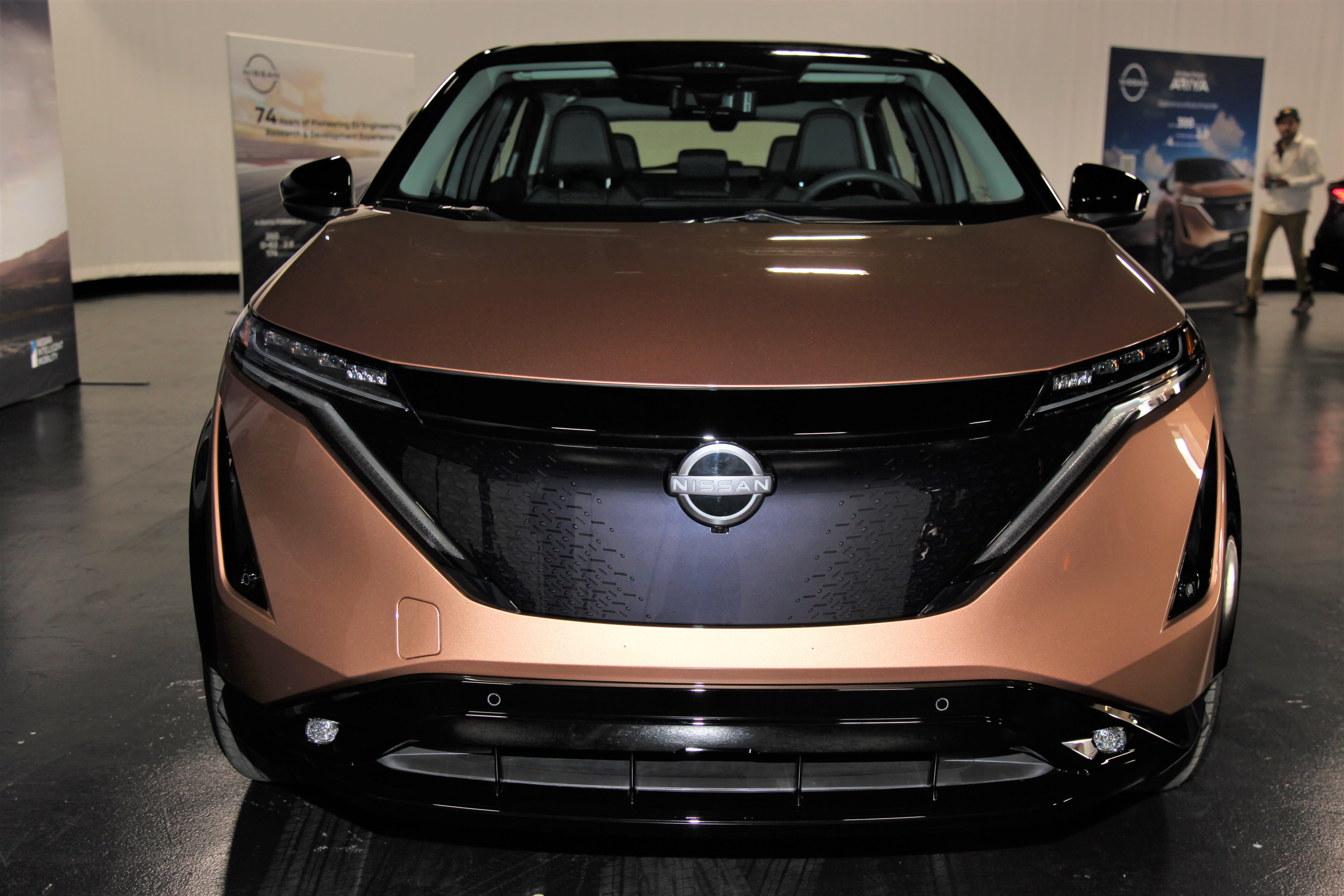
Here is hoping that our parched and rolling black-outed California can meet this ambitious demand.
About The Author

Zoran Segina grew up in Eastern Europe, where he owned several Zastava 750s (a variation of the Fiat 600) and participated in local rallies. After a lengthy diet of Yugoslav-manufactured cars, he came to the Mecca of automotive culture – wherein he promptly lost his heart to a tall girl and a short Dart Swinger. He currently commutes around LA in a BMW 633Csi, having made a switch from a Volvo 240 DL with a quarter million miles on the odometer.
